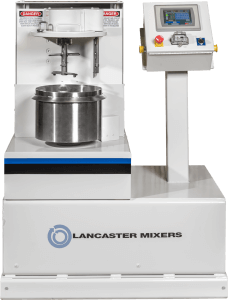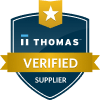
K-1 Lab Mixer
A recent blog post of ours focused on our experience in concept testing and how it applies to our high shear mixer sample testing process. This post will dig in a little deeper and provide insight into the breadth of data we provide to our customers when they commission Lancaster Products to provide sample testing for them.
Over the past 30 years, we have collaborated with our customers to perform proof of concept testing in our K1 laboratory mixers for thousands of materials samples. The desired outcome of the testing is customer dependent but typical requirements are along the lines of pelletizing/granulating to specific size ranges and desired yields, mixing to achieve homogenization, or reduced reaction times of existing processes. Outcomes provided are 1) proof of concept in achieving the desired product, and/or 2) optimization of the current mix processes. Our engineers perform the tests in our controlled laboratory, log all key information in our database, and share all data with our customers for future reference. Below is a list that summarizes some of the information we collect during every test run we perform:
- Materials. Includes: types of raw material and binders, volume, chemistry
- Mix time and steps. Includes: step times, pan speed, rotor speed
- Type of mixing tool(s) used
- Order in which ingredients are added
- Intended results/actual results
- Comments
- Samples
This data is provided to our customers in a lab report format and is valuable as a reference for future testing. It also has value in cases where our customers already have a process in place to pelletize or granulate their materials, but want to improve on their efficiencies and yields. Process optimization testing follows the steps outlined below:
- Specifications/expected results are defined
- Formulate an initial recipe for testing
- Lab scale testing
- Review test results
- Manipulate variables (materials, run time, rotor speed, etc) based on previous test to improve results
- Repeat lab scale testing as needed to achieve results that meet or exceed customer specifications
- Customer approval. Note: we can perform additional testing using any excess sample materials in an attempt to further optimize the process.
- Synthesize data and provide lab reports
Our engineers may suggest alternative ingredients, such as binders, to customers who may not have strict defined formulations. In addition to proving the concept at the small-scale laboratory level, our engineers also develop recipes that are scalable for production which may slightly differ from the recipe developed in the lab, again, with data provided along the way.
Contact our engineers today to discuss the process for sending us your materials so we can test them in our lab and develop an optimized materials processing formulation for your company.
717-273-2111



